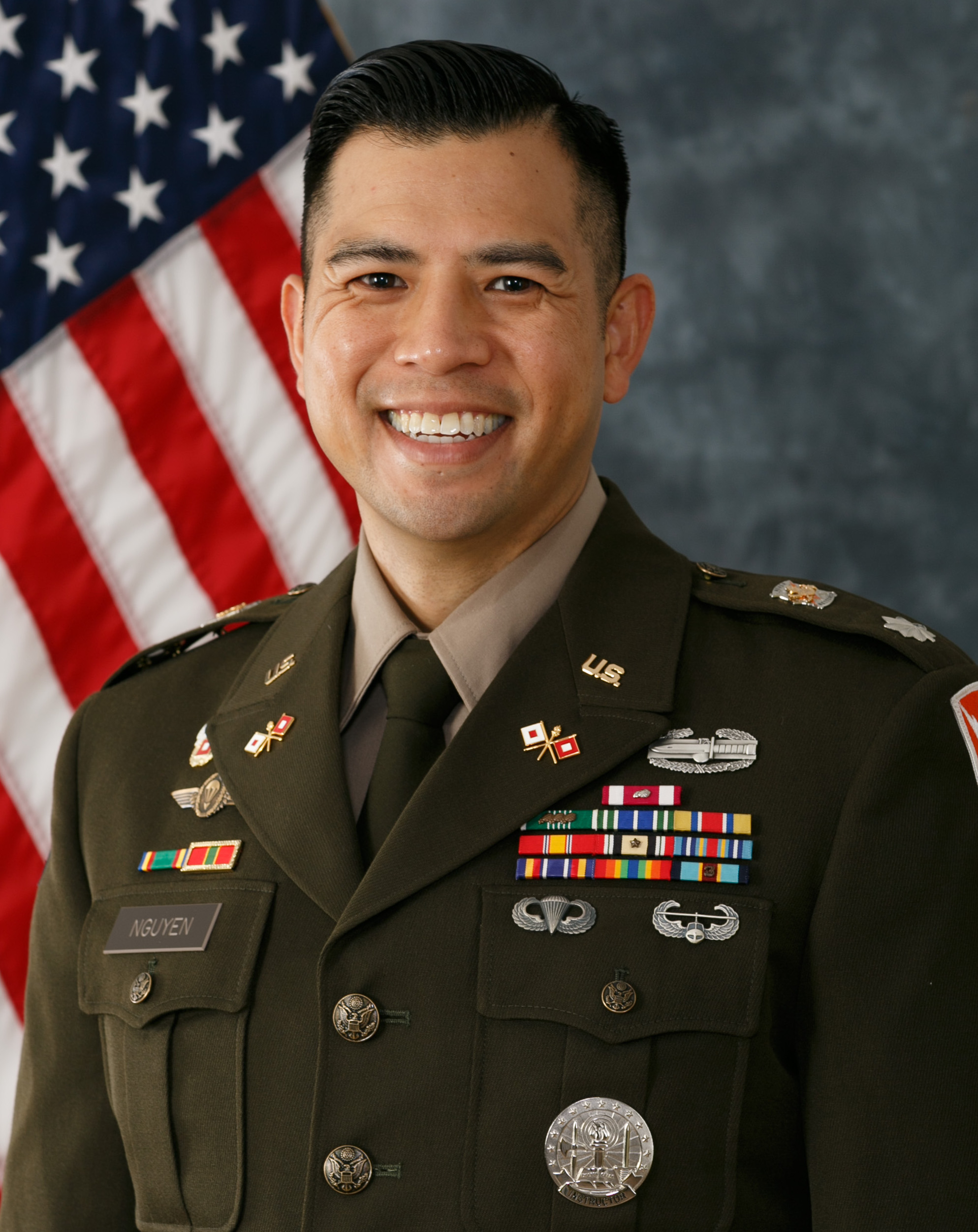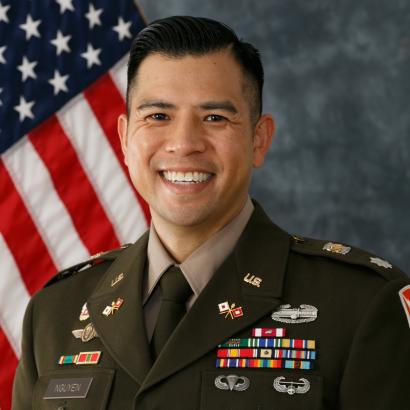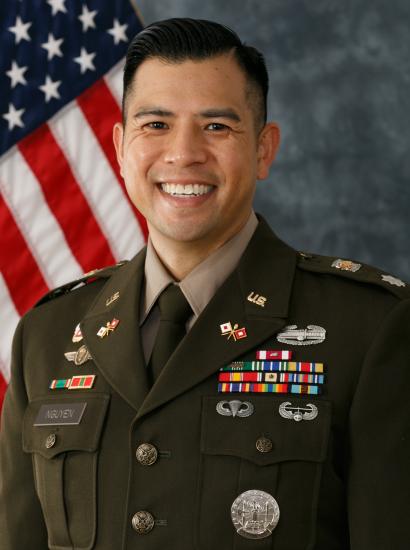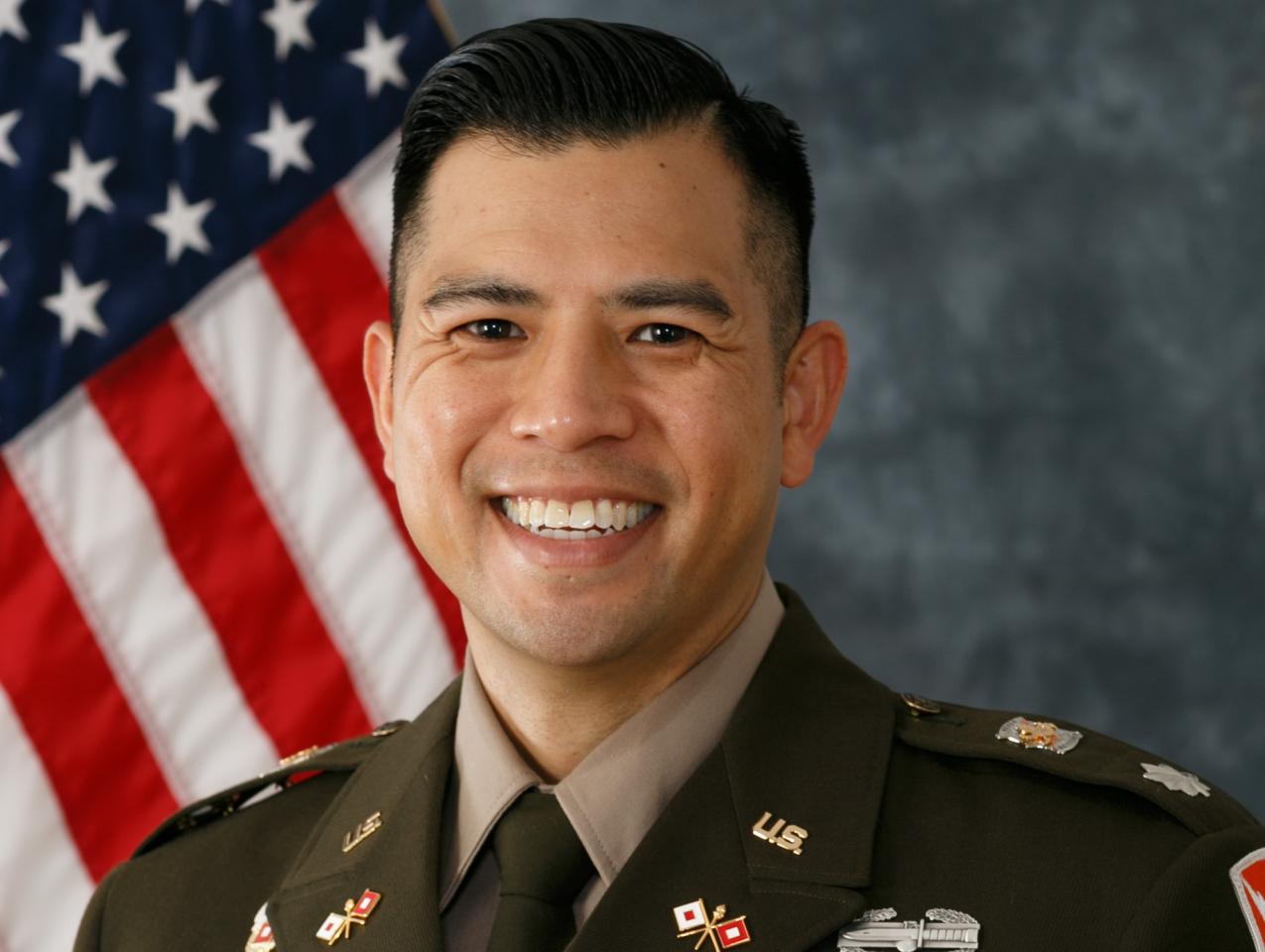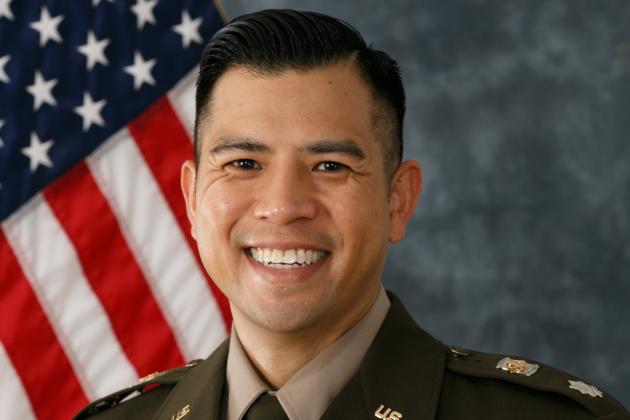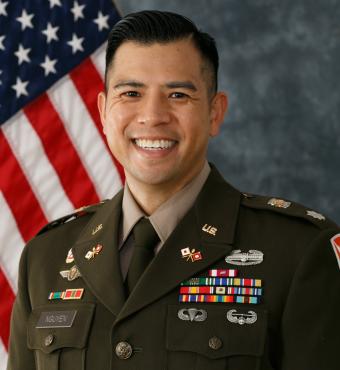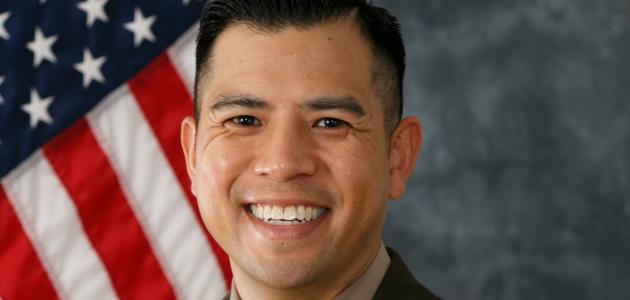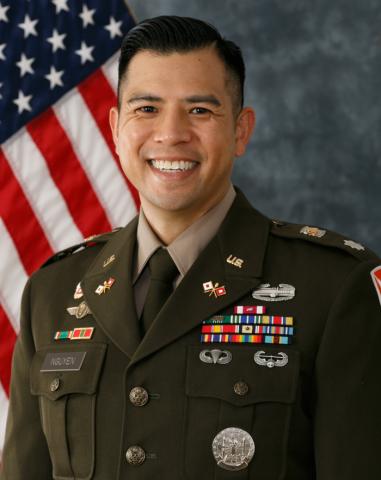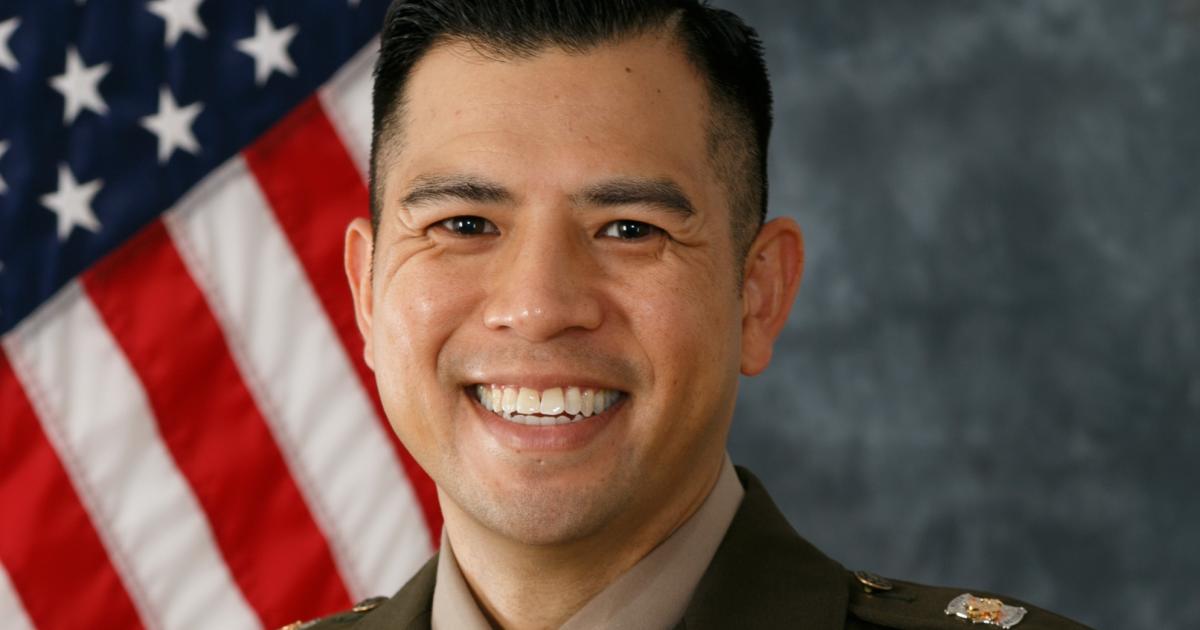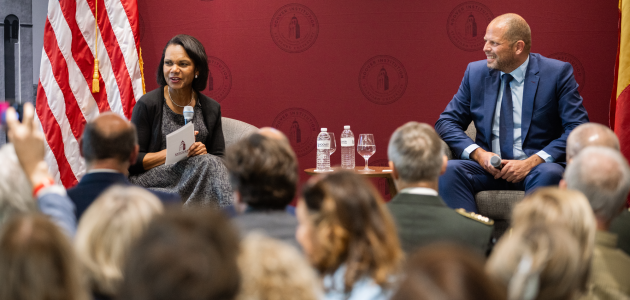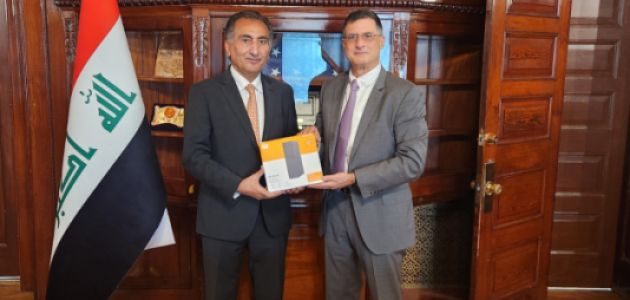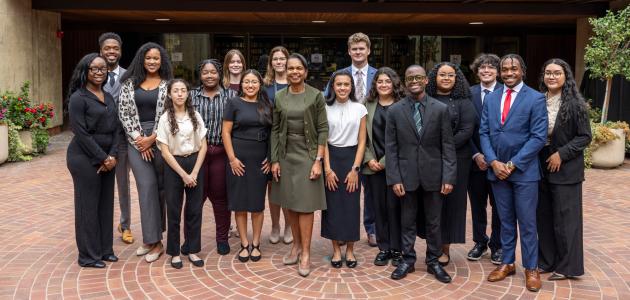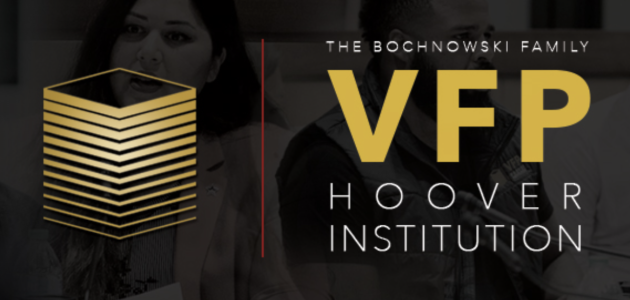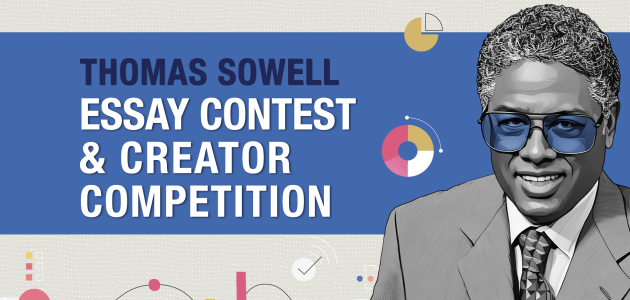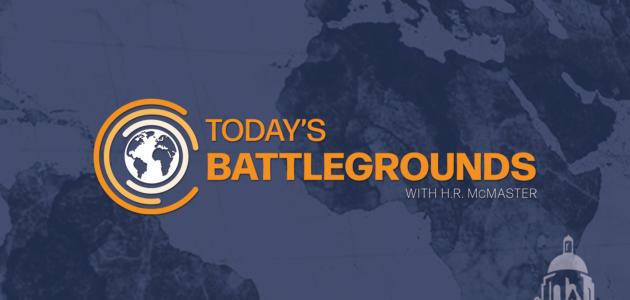Members of the 2023–24 class of the Robert and Marion Oster National Security Affairs Fellows Program are participating in an interview series in which they discuss their career experience, how they plan to spend the academic year, and their mentoring of Stanford undergraduate students. They also reflect on leadership lessons they learned in service to the nation.
Today, we speak to Lt. Col. Vinh Q. Nguyen, an enterprise marketing and behavioral economics officer in in the US Army.
Why did you join the army?
My decision to join the army was profoundly influenced by the values instilled in me by my family. My father’s service in the Army of the Republic of Vietnam and the sacrifices our family made during and after the Vietnam War positively shaped my perception of public service.
As I reflect on my upbringing, I realize how my parents consistently encouraged my siblings and me to contemplate our future career paths, emphasizing the importance of giving back to our community and country. This upbringing instilled a deep sense of duty and a desire to be part of something greater than myself.
So, I was naturally drawn to the idea of serving my country, positively impacting my community, and to the shared purpose that comes with military service. These values and experiences guided my decision to join the army.
Will you tell us about your educational background?
I grew up in Northern California; I attended high school in Stockton. After graduation, I enrolled at Marion Military Institute in Alabama, completing the Reserve Officers’ Training Corps (ROTC) program, and receiving my commission into the US Army Signal Corps in 2001. Expanding on this foundation, I pursued a bachelor of science in business administration with a focus on marketing at California State University–Sacramento, graduating in 2004.
Upon my promotion to the rank of major, I furthered my academic pursuits by obtaining a master of business administration with a specialization in financial management from the Naval Postgraduate School in 2013. In 2019, I continued my educational endeavors and earned a master of professional studies in human resources from Cornell University.
Will you tell us about your career arc?
My career spans more than two decades as an army communications officer. However, I recently transitioned into a new career field focused on marketing and behavioral economics; I decided on a career change to leverage my educational background, and more importantly, I wanted to tell the army story at the enterprise level.
I started my military career in the US Army Reserves; after three years, I went on active duty, where I have spent the last eighteen years. I’ve had the privilege of serving in various leadership and staff roles with notable units such as the First Armored Division in Germany and as a paratrooper with the 82nd Airborne Division.
One truly fulfilling assignment was when I served as the deputy director and assistant professor of military science for the army ROTC program at Cornell University. In that position, I had a chance to mentor and shape future military leaders.
In my most recent assignment, I had the honor of commanding the 78th Signal Battalion at Camp Zama, Japan. This role involved overseeing the delivery of global joint network connectivity, providing strategic and expeditionary cyber support, and managing army information technology services across mainland Japan, Okinawa, and Guam.
Throughout my career, I’ve deployed to Iraq in the Al Anbar Province and served as a security cooperation officer and advisor to the Royal Saudi Land Forces Division in Saudi Arabia. These experiences have contributed significantly to my growth as a military professional and further reinforced my unwavering commitment to serving our country.
Will you tell us how you heard about the Hoover National Security Affairs Fellowship and how you hope to make the most out of this academic year?
My introduction to the Hoover Institution and the National Security Affairs Fellowship was through my previous commanding generals, who had attended Stanford University for their Senior Service College Fellowship. They shared intriguing insights about the university’s rich history and the exceptional opportunities for professional and personal growth within Silicon Valley.
What drew me to the Hoover Institution were its founding values and unwavering commitment to “ideas advancing freedom.” I sincerely appreciate these principles, which serve as the guiding light for the organization.
Furthermore, the Hoover Institution boasts an impressive roster of fellows, including distinguished military leaders such as General Jim Mattis, General H.R. McMaster, and Admiral Ellis, as well as accomplished academics like Elizabeth Economy, Stephen Kotkin, and Amy Zegart. The depth and breadth of expertise within the institution was incredibly appealing and solidified my decision to join this distinguished fellowship.
Part of the National Security Affairs Fellowship has been teaching and mentoring Stanford University undergraduate students. Could you tell us about your experience mentoring them?
Mentoring Stanford University undergraduate students has been a truly enriching experience. These students are highly intelligent and deeply motivated to contribute to a better society. As a mentor, I have the privilege of supporting their growth and development.
It is a two-way learning process. While I share my expertise in national security, I equally value the fresh perspectives and innovative ideas I gain from their academic pursuits and research interests, enriching the learning experience for all of us.
An essential aspect of my mentoring role is to provide guidance and support. This includes offering career counseling and assistance in identifying opportunities aligned with their academic and career aspirations, particularly within the public sector.
I aim to help these students navigate the complexities of the national security landscape, fostering their critical thinking and problem-solving skills. Additionally, I share practical insights from my professional experiences, bridging the gap between academic theory and its real-world applications. It is important to ensure that these students are well-prepared for future leadership roles.
What does leadership mean to you?
Leadership is a multifaceted concept that I’ve come to deeply appreciate throughout my career; it’s not a one-size-fits-all situation. I’ve had a multitude of experiences, and one that stands out is my time as a battalion commander.
This situation was unique, because I was responsible for three distinct workforces with their own cultures—members of the military, civilians, and Japanese nationals. I’ve learned that leadership is so much more than titles and positions. At its core, leadership involves the art of inspiring and motivating others, fostering a shared sense of purpose, and upholding a sense of accountability. Central to this is the unwavering commitment to treating people with dignity and respect, thus fostering the development of more cohesive teams within a collaborative environment.
As a battalion commander, I faced this fascinating challenge of leading and unifying these different workforces, and here’s the thing: I could not do it alone. I leaned on the support of my staff and unit command teams, empowering them to take ownership and make decisions that aligned with our shared vision. Concurrently, I was dedicated to accepting calculated risks and taking responsibility for any setbacks while determining the most constructive path forward. In my view, this embodies the essence of effective leadership, whether you’re in the military or a civilian setting.







